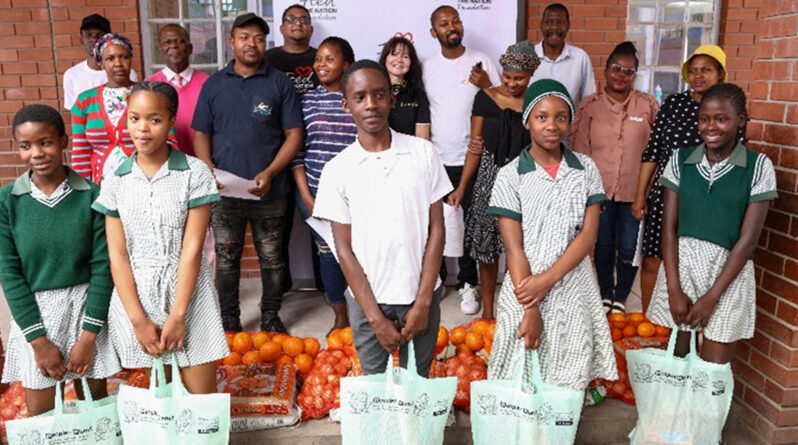Environmental clean-up campaign after flood
An environmental clean-up of communities left reeling from the devastating floods in the South African KwaZulu-Natal communities earlier this year has yielded positive results, including the collection of a whopping eight tonnes of PET plastic, which has been recycled. Among the major clean-up efforts in the province has been one driven by South Africa’s foremost plastic producer responsibility organisation, Petco, thanks to funding from The Coca-Cola Foundation (TCCF) and implementation assistance from Petco’s partners.
Following the floods, Petco approached the foundation with a proposal which focused on extracting PET plastic debris from the environment. The PET plastic had washed down waterways and was blocking sensitive and critical access routes in the four communities at the epicentre of the floods – Phoenix, Inanda, Ntuzuma and KwaMashu.
The floods, which caused an estimated R17 billion in damage and displaced around 40,000 people, destroyed the sanitation infrastructure in the province, with solid waste dislodged from dumpsites and landfills creating a serious health risk for communities.
The foundation granted funding of R4.9 million. The grant stipulated that the project be implemented over two months and that three tonnes of post-consumer PET be collected.
Petco, together with its collection partners Tri-Eco, Re-purpose and Green Corridors, not only stuck to the implementation deadline, but overshot the PET plastic collection target with a total of eight tonnes collected and transported to recyclers for processing.
In informal settlements in Phoenix, along the KwaMashu stream and in the Piesang River, Tri-Eco Tours and Green Corridors installed four “litter booms” – floating barriers designed to tactically prevent litter from continuing to float downstream.
“The booms are really effective in areas where there are settlements but no municipal waste management system, and only take seven days to install,” said Tri-Eco Tours and Green Corridors litter boom co-ordinator Siphiwe Rakgabale.
A mini materials-recovery facility where the waste trapped by the litter booms is recovered, sorted, weighed, and stored for transportation to recyclers was also set up.
Any non-recyclable materials are sent to the KwaMashu Materials Beneficiation Centre for beneficiation into products such as pavers, curb stones and paper boards.
The funding also saw Petco provide Re-purpose – an established recycling buy-back centre in Pinetown – with a recycling collection and transport trailer as well as a two-month transport subsidy.
The funding also assisted nine schools, a community hall and a child welfare centre which had been affected by the floods. The support included installing 10,000-litre rainwater tanks and mobile toilets, providing refrigerators and food parcels, and other necessary items such as school exercise books.
“Petco and its partners, Pick n Pay, Feed The Nation and Do More Foundation, came to the rescue with grocery hampers for every family in our school community, many of whom lost almost all their possessions,” said Anitha Gopalsamy, Rockford Primary School principal. “Then, when flood-induced water outages occurred, Petco installed rainwater harvesting tanks and portable toilets. We’re still receiving messages of thanks from the community.” A further 10,000 hot meals were delivered to 3 000 beneficiaries, largely from child-headed households.
Photo: Sifunimfundo Primary School pupils and representatives from The Coca-Cola Foundation, Petco, Pick n Pay and Feed the Nation. (Images: Supplied)

